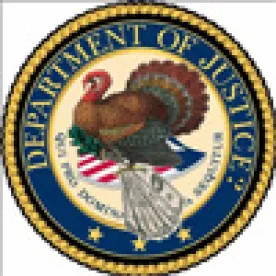The Department of Justice's Focus on Individual Accountability for Corporate Wrongdoing
The Department of Justice (DOJ) recently issued a memo reiterating its commitment to the criminal and civil investigation and prosecution of corporate employees. This follows criticism from the public and the federal bench about the low number of individual convictions flowing out of the financial crisis. For example, Judge Jed. S. Rakoff of the US District Court for the Southern District of New York has called the lack of individual convictions an "egregious failure." The policies may breathe renewed, if not totally new, life into how DOJ pursues cases against individuals.
New Guidance
On September 9, 2015, Deputy Attorney General Sally Quillian Yates released a memorandum to all criminal and civil branches of DOJ explaining the following "six key steps to strengthen [DOJ's] pursuit of individual corporate wrongdoing"[1]:
-
In order to qualify for any cooperation credit in reaching a resolution with DOJ, corporations must provide to the DOJ all relevant facts relating to the individuals responsible for the misconduct.
-
Criminal and civil corporate investigations by DOJ should focus on individuals from the inception of the investigation.
-
Criminal and civil DOJ attorneys handling corporate investigations should be in routine communication with one another.
-
Absent extraordinary circumstances or approved DOJ policy, DOJ will not release culpable individuals from civil or criminal liability when resolving a matter with a corporation.
-
DOJ attorneys should not resolve matters with a corporation without a clear plan to resolve related individual cases, and should memorialize any declinations as to individuals in such cases.
-
Civil DOJ attorneys should consistently focus on individuals as well as the company and evaluate whether to bring suit against an individual based on considerations beyond that individual's ability to pay.
The US Attorneys' Manual is being revised to reflect these steps, which apply to all future corporate investigations as well as pending investigations to the extent practicable.
Implications for Corporate Entities
With respect to criminal investigations, this guidance does more to formalize existing practices than to institute new policy. Many US attorney offices and other components of DOJ have long focused on investigating individuals alongside corporations and required complete cooperation from corporate entities when investigating its employees. In 2014, then-Principal Deputy Assistant Attorney General for the Criminal Division Marshall L. Miller remarked in a public speech that "[v]oluntary disclosure" and "identification of culpable individuals is not true cooperation."[2] Rather, the company must go further and "locate and provide facts and evidence at their disposal that implicate those individuals."[3]
However, this new guidance may broaden the criminal and civil exposure of corporate employees suspected of wrongdoing, which in turn may impact the scope of a company's internal investigations. In the past, federal prosecutors have at times negotiated plea agreements with corporate entities that explicitly or implicitly provided individual employees immunity from prosecution. Likewise, civil arms of DOJ have sometimes been content to reach resolutions with corporations that release individual employees from civil liability.
Under the new DOJ policy, such practices may be at an end, or will at least be substantially curtailed. Furthermore, the new guidance may impact the otherwise cooperative relationship between corporate and individual subjects. Employees who would have previously cooperated with an internal investigation may be more reluctant to do so now that DOJ has effectively upped the bounty for corporations to turn over employees suspected of wrongdoing.
Additionally, criminal prosecutors have sometimes chosen to terminate investigations—whether due to a statute of limitations, difficulty in proving culpable intent, etc.—without referring the investigation to their civil counterparts, whose investigations may not face the same hurdles. Reinforced collaboration among DOJ departments, which this guidance now mandates as policy, could increase the number and scope of civil investigations into individual misconduct.
Anticipating these possible changes, corporate entities would be wise to: (1) expand their internal investigations into possible criminal wrongdoing to cover possible civil violations by individuals; (2) take into account the possible chilling effect that DOJ's guidance will have on corporate employees, which could expedite the need for a thorough investigation as well as increase the likelihood of a conflict of interest between the corporation and the employee; and (3) ensure that corporate training for employees covers the types of civil regulations that parallel criminal statutes.
[1] "Individual Accountability for Corporate Wrongdoing," September 9, 2015, available here.
[2] Principal Deputy Assistant Attorney General for the Criminal Division Marshall L. Miller, Global Investigation Review Program, September 17, 2014, available here.
[3] Id.






 />i
/>i
